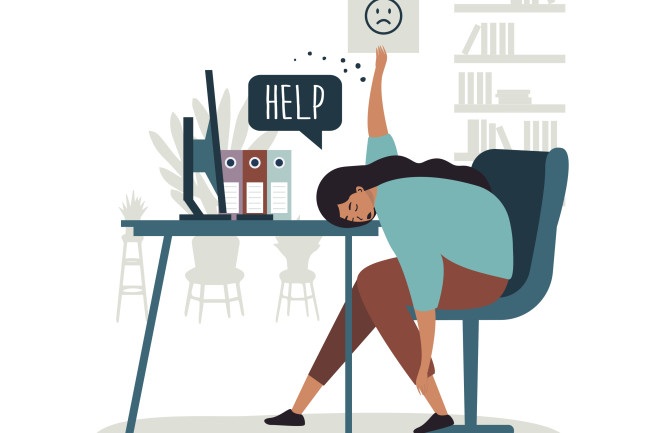We all experience stress or burnout at some time in our careers that is related to the corporate world. Stress is a mental or emotional state where tension is present due to unfavourable circumstances.
Contrarily, burnout is a condition brought on by repeated exposure to stress. It results in the weakness of the mind or the heart.
Table of Contents
What Is Work Stress?
People may experience work related stress as a reaction to pressures and demands that are not compatible with their skills and knowledge and that test their capacity for adjustment. Although stress can arise under a variety of work conditions, it is frequently exacerbated when staff members feel they have little support from managers and coworkers and little influence over work procedures. Stress and pressure are frequently confused, and this is sometimes used as a justification for poor management techniques.

Because of the requirements of the modern work environment, pressure at the job cannot be avoided. Depending on the resources available and the individual’s traits, pressure that is deemed acceptable by the individual may even keep employees awake, engaged, able to work, and able to learn. Stress, on the other hand, results when that pressure becomes excessive or otherwise uncontrollable. Employee health and company performance can both be negatively impacted by stress.
What Is Burnout?
Burnout is a term used to describe a chronic state of physical, mental, or emotional weariness brought on by high levels of stress. It is a mental state characterised by emotional weariness and pessimistic attitudes that is brought on by prolonged exposure to extreme emotional stress. Burnout results in hypertension, mental melancholy, and cynicism about everything. It occurs when you feel overburdened and unable to consistently meet demands.
Work Stress Vs Burnout
Burnout is frequently attributed to the rise in stress and workload in the job, which is happening everywhere. A recent study, however, casts doubt on that notion. Herbert Freudenberger first used the term “burnout” in 1974. The International Classification of Diseases, the manual that directs medical professionals in disease identification, included the disorder in 2019 as an official medical diagnosis, marking a significant achievement for the World Health Organization (WHO). According to this definition, burnout is “a syndrome thought to emerge from prolonged workplace stress that has not been properly controlled.” Reduced professional efficacy, increasing mental distance from one’s job, or emotions of negativism or cynicism related to one’s career, are three signs that can help you identify it.
The Key Difference Between Stress And Burnout:
Companies are treating burnout more seriously now that it is recognised as a persistent workplace concern. Understanding that burnout is different from stress and that it cannot be cured by taking a long vacation, slowing down, or working fewer hours is helpful.
Burnout is a completely different mental state than stress. Even when under stress, it’s difficult to handle demands. However, once burnout sets in, you run out of steam and have given up on overcoming your challenges. There are other symptoms as well as exhaustion when you’re burnt out.

You feel deeply dejected and despondent since you know your efforts have been in vain. Small duties become overwhelming, and life loses its purpose. Your desire and interests wane, and you are unable to do even the most basic duties. The indications are as follows:
- Disappointment or meaninglessness
- Fatigue and tiredness, both mental and physical
- Irritability, impatience, and depression
- Loss of drive and diminished interest in obligations
- Failure to fulfil responsibilities
- Reduced resistance to disease
- Emotional distance from earlier interactions
- Sensing that efforts are being ignored
- Leaving out of social and professional settings
- Optimism that is lost, powerless, and depressed
- Job inefficiency and absence
- Being sleep deprived
- Having difficulties focusing and having fuzzy thinking
The results of the current study demonstrate that burnout and stress are mutually reinforcing. Contrary to popular assumption, burnout has a significantly bigger effect on work-related stress than it does the other way around.
Learn more about the human mind, discover yourself, and remain motivated with Evolve! If you liked our article, try the Evolve App to help you move on and focus on your growth. Evolve has a range of guided audios that help you proactively manage stress, reduce anxiety and make mindfulness light and joyful, so you can be balanced at any time! The Evolve app is now live globally on Android and Apple. Click here to try it for free!